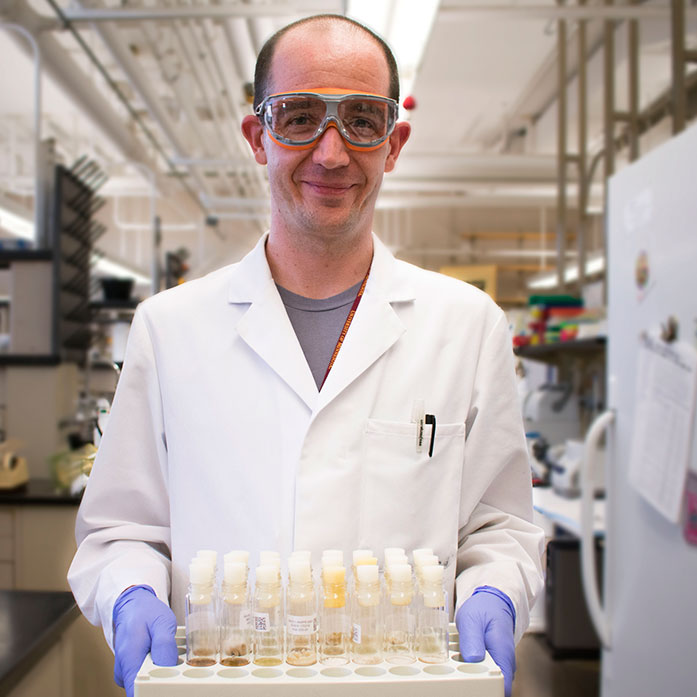BTI researcher Francois Gaascht dedicated his career to natural product discovery and the search for new drug therapies.


Gaascht is particularly interested in understanding the biochemical processes underlying drug therapies, a painstakingly long process. His current project, funded through the Minnesota Future Grants Program, involves the screening and isolation of natural chemical compounds from Basidiomycota mushrooms found in the Upper Midwest. Gaascht focuses on discovering and manipulating molecules from Basidiomycota that may display antifungal properties. In a later stage, the lab will evaluate their potential for therapeutic applications.
Collecting and cultivating the mushrooms can take months, and the development of a molecule into a potential drug can take decades. Sometimes, a promising therapeutic molecule that passed all laboratory tests may be ineffective or even toxic when tested on humans, and require the research team to start over. But Gaascht remains determined.
“I find the research project to be compelling — it fit perfectly with my professional goals,” says Gaascht. “I love that I have the opportunity to work with different parts of the project — from the collection of mushrooms to preparation of culture to isolation of molecules, and finally, to identification of molecules. I do it all from A to Z.”
Although Gaascht currently studies local mushrooms, he previously extracted natural products from exotic agents such as carnivorous plants and curcumin, an Indian spice. In fact, he is fascinated that compounds found in fruits and vegetables have the ability to exert biological activity and can consequently serve as anticancer therapeutic agents. He has also analyzed the natural products found within coffee, licorice, and walnuts, and discovered that several molecules found within these common foods exhibit anticancer properties. “Unfortunately, the prevalence of cancer is only increasing in modern society,” says Gaascht. “ Nature produces a huge diversity of bioactive molecules that are just waiting to be discovered, developed, and used as the next generation of drugs.” – Rachel Zussman